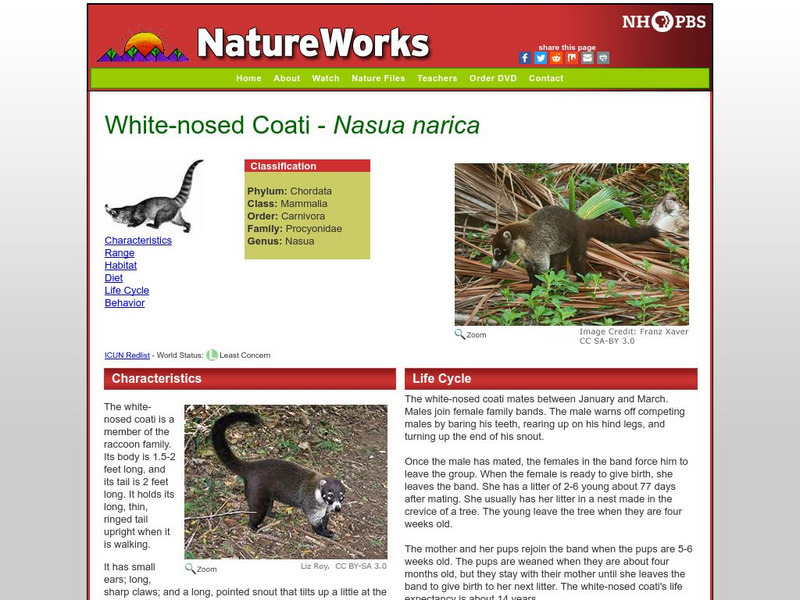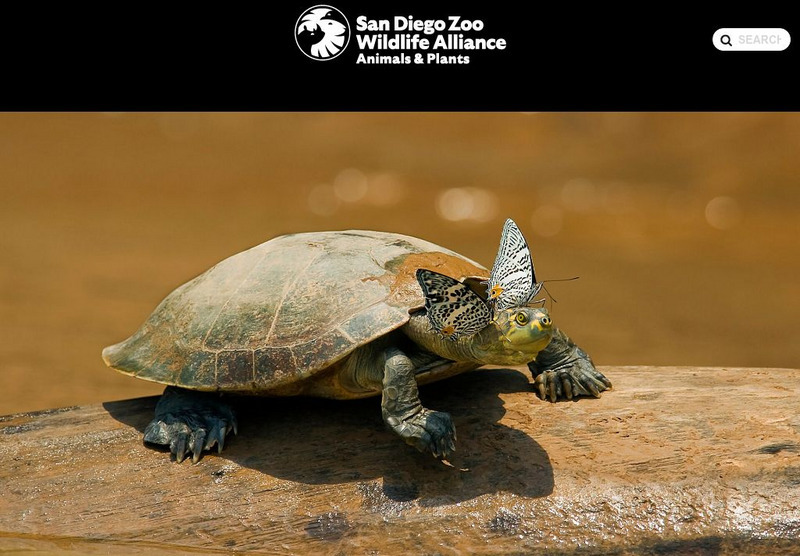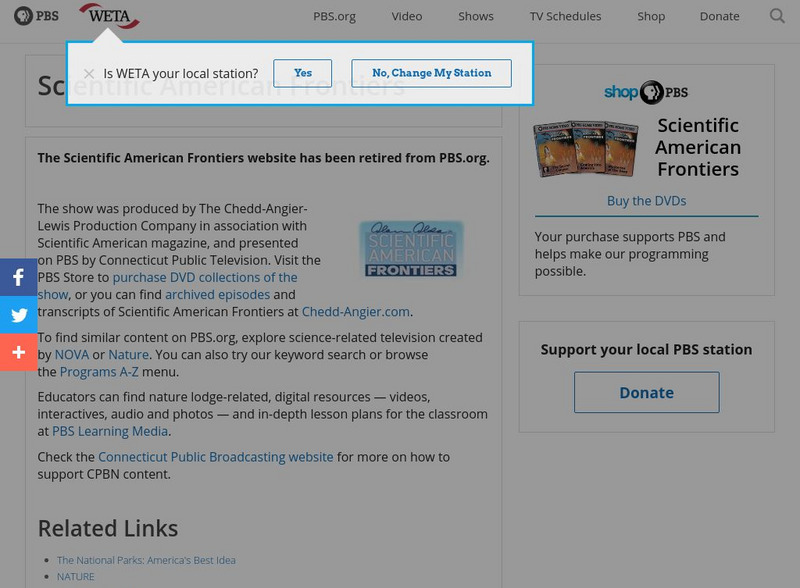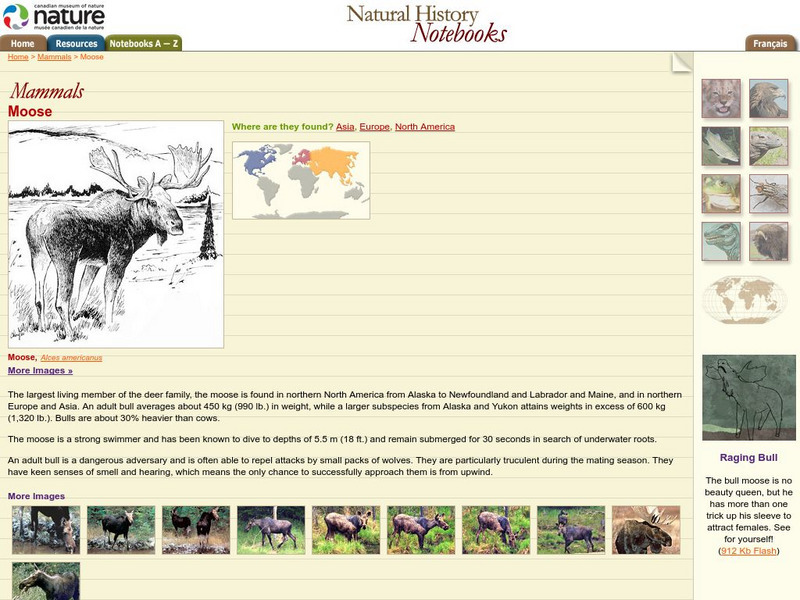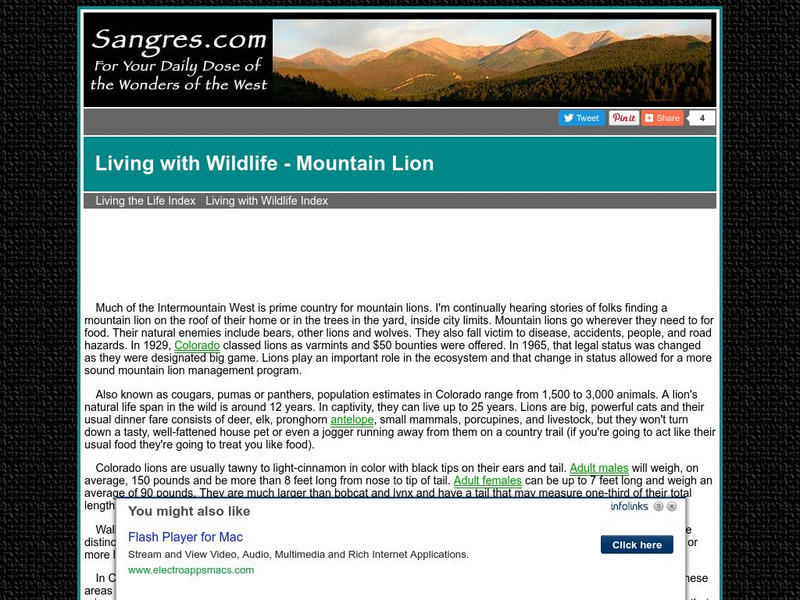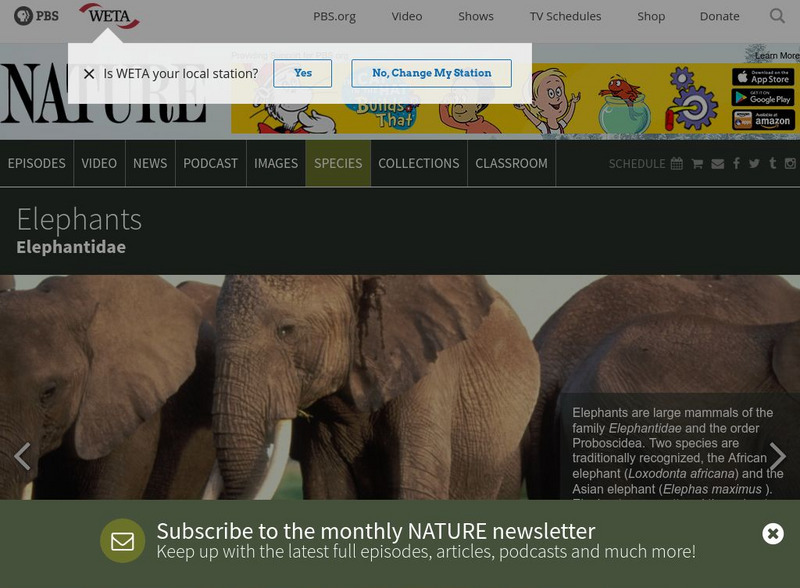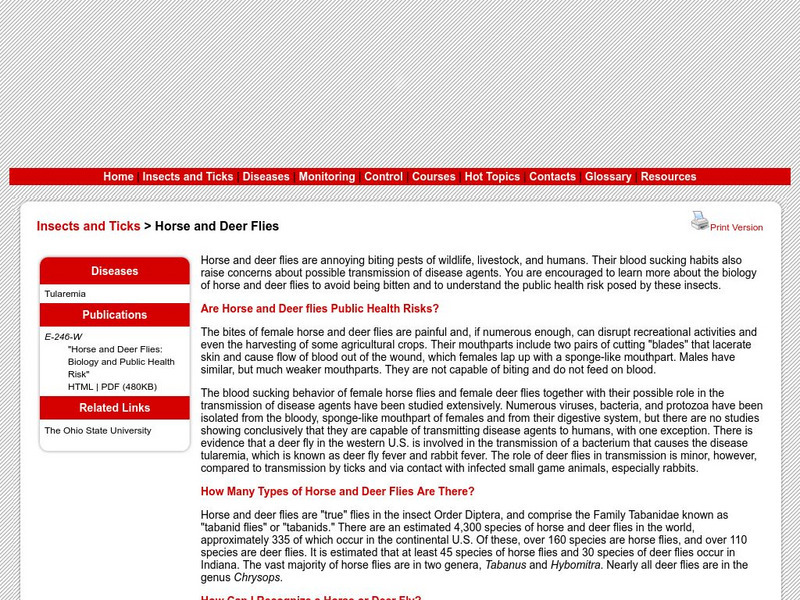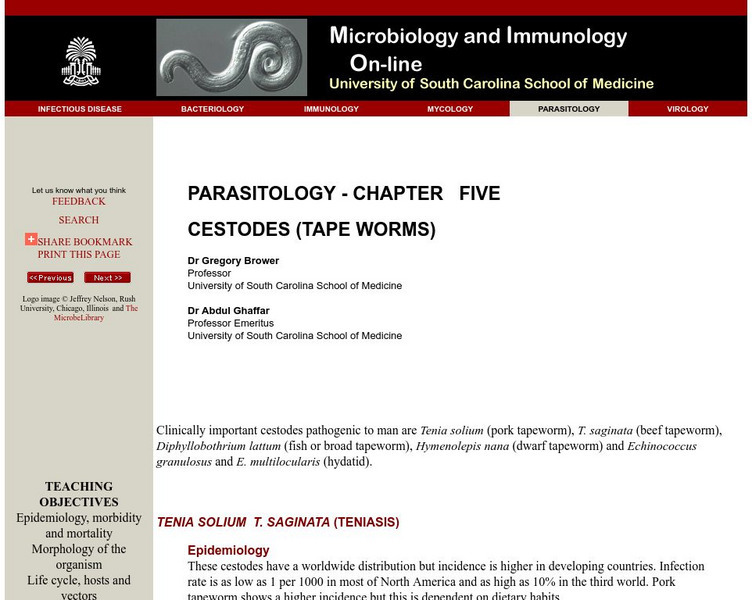Hi, what do you want to do?
PBS
Nh Pbs: Nature Works: White Nosed Coati
This site features a wide range of information on the White-Nosed Coati. The content of this resource includes a look at this species' characteristics, range, habitat, food, and more.
University of Wisconsin
University of Wisconsin: Amphibian Embryology Tutorial
This amphibian embryology tutorial takes an in depth look at the question "Why study amphibians?". Through this tutorial students will develop a better understanding of vertebrate development.
Australian Museum
Australian Museum: Beetles
This thorough site provides a general overview of beetles and focuses on topics such as habitat, anatomy, life cycle, feeding, predation and defense, and beetles as pests.
Oakland Zoo
Oakland Zoo: Chimpanzee
This resource provides a general overview of the chimpanzee. The content includes a focus on the ape's habitat, diet, life cycle and social structure, special adaptations, and status in the wild.
Georgia State University
Georgia State University: Hyper Physics: Energy Cycle From Plants to Animals
Find out about the essential role energy plays in cell function and in sustaining life. Trace energy transformations as they pass from one living thing to another.
Louisiana Department of Education
Louisiana Doe: Louisiana Believes: Ela Unit: Grade 1: Frogs
First graders gather information from a variety of texts to more deeply understand the connections between literary and informational texts. They build on knowledge of the seasons to focus on the life cycles of animals, specifically...
ArtsNow
Arts Now Learning: Magic Rocks [Pdf]
In this lesson, students work in groups with each acting as a predator, prey, or family member in a particular habitat. They present their habitat performance to the class and students identify the habitat and animal relationships. Then,...
CK-12 Foundation
Ck 12: Life Science: 8.5 Cyclic Behavior
Explore different types of cycles in animal behavior.
BiologyWise
Biology Wise: Parasitic Flatworms
Describes types of flatworms that are parasitic to humans and animals and what their life cycle looks like. Two or more hosts are needed for them to complete their life cycle.
San Diego Zoo Global
San Diego Zoo: Reptiles
What is a reptile? Use this resource to understand the basic facts of all reptiles and click to detailed information on many specific types.
San Diego Zoo Global
San Diego Zoo: Beetle
Quick facts, fun facts, interesting facts, and photo bytes are part of this comprehensive site.
San Diego Zoo Global
San Diego Zoo: Turtle and Tortoise
This resource provides detailed information about turtles and tortoises, as well as several pictures and an audio clip.
Science Education Resource Center at Carleton College
Serc: Phenology and Weatherguide Calendar
An activity where students observe the grounds around their school to study the plant and animal life cycle. Students will make a map of the school to keep track of their observations. Students will also compare their phenology calendar...
PBS
Pbs Teachers: Scientific American: Life's Little Questions: Can You Beat Jet Lag
Explore the human body's need for a normal cycle of dark and light and apply this to an understanding of biological clocks in other animals. Test the effect of light on the development of mealworm larvae into adults.
Canadian Museum of Nature
Canadian Museum of Nature: Peary Caribou
Get to know the Peary Caribou.. colored photos, description, life cycle, map of habitat, food. Only the basic details of this animal are given, making it a perfect site for younger researchers.
Canadian Museum of Nature
Canadian Museum of Nature: Moose
Get to know the Moose.. colored photos, description, life cycle, map of habitat, food. Only the basic details of this large mammal are given, making this site perfect for younger researchers.
ClassFlow
Class Flow: Animals: Food Chains, Characteristics, and Habitats Around the Worl
[Free Registration/Login Required] This flipchart is a great introduction to ways animals get food, characteristics of animals, habitats around the world. It contains pictures that will help students understand life cycles and where to...
San Diego Zoo Global
San Diego Zoo: Butterflies
An in-depth description of butterflies, with information about their classification, appearance, habitat, adaptations, reproduction, diet, and other interesting facts. Also includes pictures. [3:17]
Other
Sangres: Living With Wildlife Mountain Lion
A profile of the Colorado mountain lion including description, habitat, range, diet, young, reproduction, other common names it is known by, and even how to act if you should come upon one of these cats in the wild!
PBS
Nh Pbs: Nature Works: Polar Bears
This site created by NatureWorks focuses on the Polar Bears. The content of this resource includes a look at this species' characteristics, range, habitat, diet, behavior and life cycle.
Ducksters
Ducksters: Amphibians for Kids: Frogs, Salamanders, and Toads
What is an amphibian? Kids learn about these cold blooded animals including salamanders, frogs, and toads. Lifecycle such as tadpole and metamorphosis.
PBS
Pbs Nature: Elephants
Did you know that the elephant is the largest animal in the world? Discover more about where they live, what they eat and how they socialize when you visit this site.
Purdue University
Purdue University: Medical Entomology: Horse and Deer Flies
Horse flies and deer flies are significant pests to both humans and animals. This site describes their life cycles, feeding patterns, and some methods of controlling them.
Other
Parasitology: Chapter Five: Cestodes
An exhaustive look at numerous types of tapeworms that infect different animals. The site contains numerous pictures and life cycle diagrams. There are links to lectures and additional websites.





